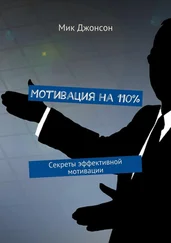Ryan, Richard M., and Wendy S. Grolnick. “Origins and Pawns in the Classroom: Self-Report and Projective Assessments of Individual Differences in Children’s Perceptions.” Journal of Personality and Social Psychology 50 (1986): 550–558.
Ryan, Richard M., Richard Koestner, and Edward L. Deci. “Ego-Involved Persistence: When Free-Choice Behavior Is Not Intrinsically Motivated.” Motivation and Emotion 15 (1991): 185–205.
Ryan, Richard M., Valerie Mims, and Richard Koestner. “Relation of Reward Contingency and Interpersonal Context to Intrinsic Motivation: A Review and Test Using Cognitive Evaluation Theory.” Journal of Personality and Social Psychology 45 (1983): 736–750.
Ryan, Richard M., and Cynthia L. Powelson. “Autonomy and Relatedness as Fundamental to Motivation and Education.” Journal of Experimental Education 60 (1991): 49–66.
Ryan, Richard M., and Jerome Stiller. “The Social Contexts of Internalization: Parent and Teacher Influences on Autonomy, Motivation, and Learning.” Advances in Motivation and Achievement 7 (1991): 115–149.
Sagi, Abraham, and Martin L. Hoffman. “Empathic Distress in the Newborn.” Developmental Psychology 12 (1976): 175–176.
Samalin, Nancy. Loving Your Child Is Not Enough: Positive Discipline That Works. New York: Penguin, 1987.
Sampson, Edward E. “On Justice as Equality.” Journal of Social Issues 31 (1975): 45–64.
Sansone, Carol, and Carolyn Morgan. “Intrinsic Motivation and Education: Competence in Context.” Motivation and Emotion 16 (1992): 249–270.
Sansone, Carol, Charlene Weir, Lora Harpster, and Carolyn Morgan. “Once a Boring Task Always a Boring Task? Interest as a Self-Regulatory Mechanism.” Journal of Personality and Social Psychology 63 (1992): 379–390.
Scholtes, Peter R. The Team Handbook: How to Use Teams to Improve Quality. Madison, Wis.: Joiner Associates, 1988.
Scholtes, Peter R. “An Elaboration of Deming’s Teachings on Performance Appraisal.” In Performance Appraisal: Perspectives on a Quality Management Approach , edited by Gary N. McLean, Susan R. Damme, and Richard A. Swanson. Alexandria, Va.: American Society for Training and Development, 1990.
Scholtes, Peter R. The Leader’s Handbook: Making Things Happen, Getting Things Done. New York: McGraw-Hill, 1998.
“School Haze.” The New Republic , 16 December 1991: 7–8.
Schultz, Louis E. “Compensation in a Collaborative Society.” In Performance Appraisal: Perspectives on a Quality Management Approach , edited by Gary N. McLean, Susan R. Damme, and Richard A. Swanson. Alexandria, Va.: American Society for Training and Development, 1990.
Schulz, Richard. “Effects of Control and Predictability on the Physical and Psychological Well-Being of the Institutionalized Aged.” Journal of Personality and Social Psychology 33 (1976): 563–573.
Schwartz, Barry. “Failure to Produce Response Variability with Reinforcement.” Journal of the Experimental Analysis of Behavior 37 (1982a): 171–181.
Schwartz, Barry. “Reinforcement-Induced Behavioral Stereotypy: How Not to Teach People to Discover Rules.” Journal of Experimental Psychology: General 111 (1982b): 23–59.
Schwartz, Barry. The Battle for Human Nature: Science, Morality, and Modern Life. New York: Norton, 1986.
Schwartz, Barry. “The Experimental Synthesis of Behavior: Reinforcement, Behavioral Stereotypy, and Problem Solving.” In The Psychology of Learning and Motivation , vol. 22, edited by Gordon H. Bower. San Diego: Academic Press, 1988.
Schwartz, Barry. “The Creation and Destruction of Value.” American Psychologist 45 (1990a): 7–15.
Schwartz, Barry. “King Midas in. America: Science, Morality, and Modern Life.” In Enriching Business Ethics , edited by Clarence C. Walton. New York: Plenum, 1990b.
Schwartz, Barry, and Hugh Lacey. Behaviorism, Science, and Human Nature. New York: Norton, 1982.
Schwartz, Barry. “What Applied Studies of Human Operant Conditioning Tell Us About Humans and About Operant Conditioning.” In Human Operant Conditioning and Behavior Modification , edited by Graham Davey and Chris Cullen. Chichester, England: Wiley, 1988.
Schwartz, Barry, Richard Schuldenfrei, and Hugh Lacey. “Operant Psychology as Factory Psychology.” Behaviorism 6 (1978): 229–254.
Sears, Robert R., Eleanor E. Maccoby, and Harry Levin. Patterns of Child Rearing. Evanston, III: Row, Peterson, 1957.
Seligman, Give, Russell H. Fazio, and Mark P. Zanna. “Effects of Salience of Extrinsic Rewards on Liking and Loving.” Journal of Personality and Social Psychology 38 (1980): 453–460.
Sewell, Trevor E., and Roberta H. Walker. “The Effects of Material and Symbolic Incentives on the Learning Ability of Low SES Black Children.” Journal of General Psychology 106 (1982): 93–99.
Shanker, Albert. “Perestroika for the Classroom.” New Perspectives Quarterly , Fall 1990: 20–22.
Shapira, Zur. “Expectancy Determinants of Intrinsically Motivated Behavior.” Journal of Personality and Social Psychology 34 (1976): 1235–1244.
Shapiro, E. Gary. “Racial Differences in the Value of Job Rewards.” Social Forces 56 (1977): 21–30.
Sharan, Shlomo. “Cooperative Learning: Problems and Promise.” The International Association for the Study of Cooperation in Education Newsletter , December 1986: 3–4.
Sharan, Yael, and Shlomo Sharan. Expanding Cooperative Learning Through Group Investigation. New York: Teachers College Press, 1992.
Shevin, Mayer, and Nancy K. Klein. “The Importance of Choice-Making Skills for Students with Severe Disabilities.” Journal of the Association for Persons with Severe Handicaps 9 (1984): 159–166.
Silberman, Charles E. Crisis in the Classroom: The Remaking of American Education. New York: Random House, 1970.
Silverman, Buddy Robert S. “Why the Merit Pay System Failed in the Federal Government.” Personnel Journal , April 1983: 294–302.
Simmons, John, and William Mares. Working Together. Employee Participation in Action. New York: New York University Press, 1985.
Skinner, B. F. Walden Two. 1948. Reprint. New York: Macmillan, 1962.
Skinner, B. F. Beyond Freedom and Dignity. 1971. Reprint. New York: Bantam/Vintage, 1972.
Skinner, B. F. About Behaviorism. New York: Knopf, 1974.
Skinner, B. F. A Matter of Consequences. New York: Knopf, 1983.
Skinner, B. F. “Can Psychology Be a Science of Mind?” American Psychologist 45 (1990): 1206–10.
Slater, Philip. Wealth Addiction. New York: Dutton, 1980.
Slavin, Robert E. Cooperative Learning: Theory, Research, and Practice. Englewood Cliffs, N.J.: Prentice-Hall, 1990.
Slavin, Robert E. “Group Rewards Make Groupwork Work: Response to Kohn.” Educational Leadership , February 1991: 89–91.
Smith, Cathleen L., Donna M. Gelfand, Donald P. Hartmann, and Marjorie E. Y. Partlow. “Children’s Causal Attributions Regarding Help Giving.” Child Development 50 (1979): 203–210.
Smith, Frank. Insult to Intelligence: The Bureaucratic Invasion of Our Classrooms. Portsmouth, N.H.: Heinemann, 1986.
Smith, Timothy W., and Thane S. Pittman. “Reward, Distraction, and the Over-justification Effect.” Journal of Personality and Social Psychology 36 (1978): 565–572.
Smith, Wilson Emerson. “The Effects of Anticipated vs. Unanticipated Social Reward on Subsequent Intrinsic Motivation.” Dissertation Abstracts International 37B, 2 (1976): 1043–1044.
Читать дальше
Конец ознакомительного отрывка
Купить книгу

![Олег Абакумов - Третье отделение на страже нравственности и благочиния [Жандармы в борьбе со взятками и пороком, 1826–1866 гг.]](/books/27001/oleg-abakumov-trete-otdelenie-na-strazhe-nravstven-thumb.webp)










